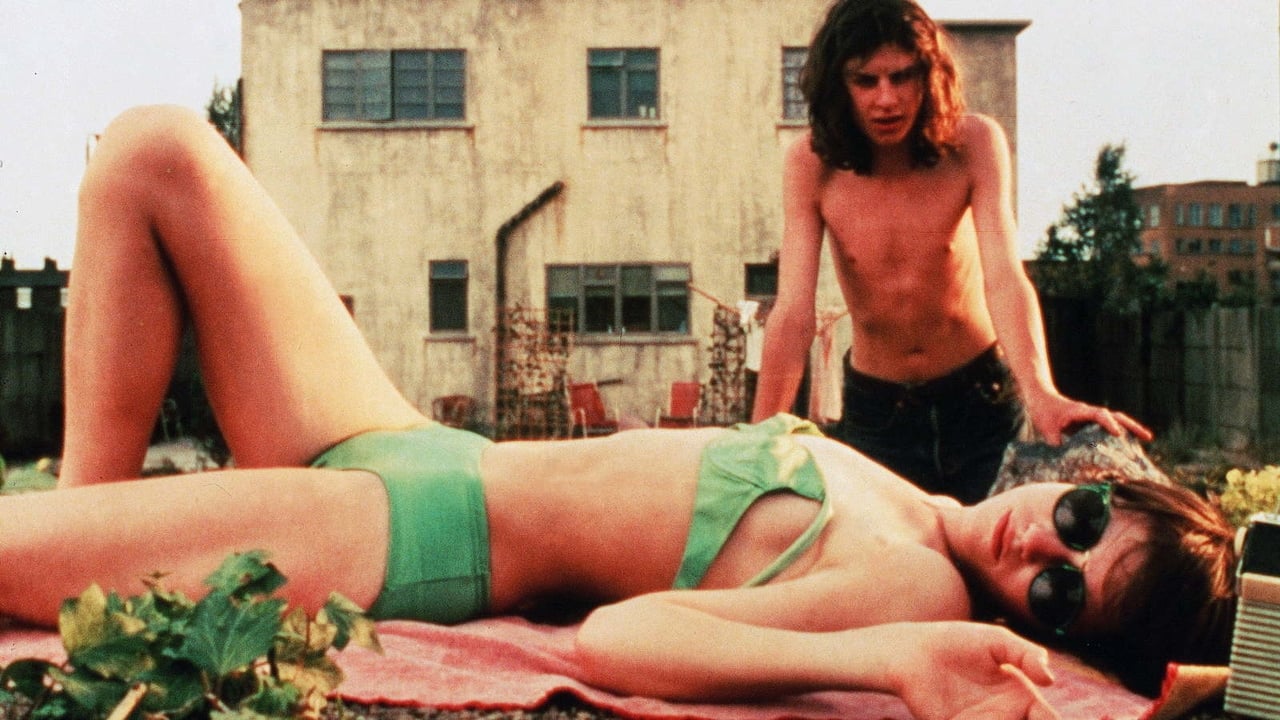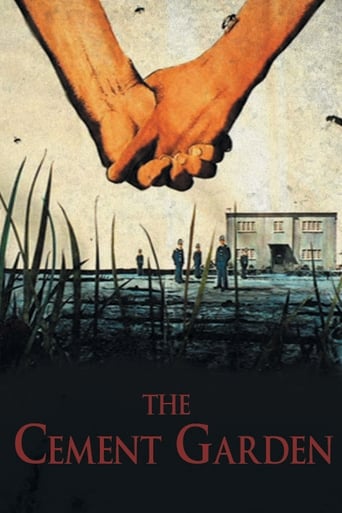

Best movie of this year hands down!
... View MoreIt is not only a funny movie, but it allows a great amount of joy for anyone who watches it.
... View MoreI am only giving this movie a 1 for the great cast, though I can't imagine what any of them were thinking. This movie was horrible
... View MoreThis is a dark and sometimes deeply uncomfortable drama
... View MoreI get fascinated by the human condition movies. What can happen in some unusual condition, how may we react? How others came across it, in real life cases or in fiction. What could happen if both parents die and you don't want your family to be separated. This film remind me "The Lord of the Rings", B&W version, where chaos is the norm. Please don't expect the kids to behave as in "Big Daddy" where the kid is bathed with swimming suit, or as in "Home Alone" cute boy and clown thieves, these 2 movies are far away from reality than some kids sleeping in the nude and running in the backyard in a summer hot night. "Home Alone" and Cement Garden" are two opposite movies coming from two different human minds performed by actors who were not harmed, one created for the children audience and North American people an the other to the European adult mature audience.
... View MoreAs aimless-46's "big wow" review states, the set is fantastic. As is the overall look of the film. The only difference is I actually liked the movie, primarily because it plays as an incredible piece of imagination rather than as any kind of shocking, deep philosophical statement.The film works best as "this is our world" rather than "forbidden love." The sense of isolation, of familial insularity is all-pervasive, probably due to Derek being the only adult character of any consequence. Both mother and father are so faintly delineated that there's no real sense of loss when they both die. Scenes where the children reflect back on them have no real power since the parents were hardly there to begin with. In fact, the film works better if you start it around 11 mins. This creates the feeling that the father has been dead for quite some time rather than very recently. The characters lack of emotional reaction to his being gone makes more sense then. Likewise the mother's illness becomes something that has been going on for a significant length of time, so that when she too dies, it doesn't change much--the children have already adjusted to living w/o her.I could go on in a similar vein as there's so much which doesn't really make a lot of sense when looked at too closely. What makes it work is the kind of otherworldly shimmer Birkin gives the story. It frees the viewer up from having to parse it for cues to deeper meaning in the real world, so that we can get a feeling of what it's like to live in a very obsessive, very small world where your older sister is a disturbing little tease and your brother is a 15yr old version of Jim Morrison.Aimless-46's review touches on Birkin's artsy pretentiousness, and yeah, it's definitely there. Fortunately, Birkin is so inept when it comes to symbology that it works in the film's favor. The flashbacks to the beach scenes were probably meant to be something very specific, but they're presented in such an uncoordinated manner (and at such random points in the narrative) as to be utterly mysterious, heightening the sense of disconnection from reality. Then there's the voice-overs (in a Saturday morning cartoon announcer's voice) of the cheesy space novel Jack is reading, which should be really weak attempts at ironic commentary, except for the quoted passages seem to have nothing to do with the Jack/Julie storyline. Or, in fact, anything in the movie at all. And, of course, there's the "Naked Jack in the Rain" scene, possibly intended as ...well, I have no idea. Something metaphysical, I suppose, although the way it's shot it seems like little more than cooling off in the rain on a hot sweaty night.Birkin (following Macgowan's lead in the book?) appears to be trying to say something profound about gender, but it's laughable, which gives the movie some needed levity at key moments. By striving (one imagines) to depict the universal, Birkin ends up adding character depth. Julie dressing the youngest boy Tom up as a girl comes off not as a statement about gender identity, but rather as a hint that Julie has an actual sense of humor. Jacks's discovery of Tom, wearing a ridiculous wig and playing at husband and wife with his friend William, underlines Jack's essential cluelessness. Even after Tom informs him that they're playing at being Jack and Julie, Jack doesn't seem to get it. Or care.The only thing keeping me back from handing out a 10 for this one is the intrusive subplot of Derek. Nevermind that there's no particular explanation for why a successful 33yr old is perving around trying to score with a barely legal teenager, or how in hell he figures out that a locker down in the basement of a very large house contains the cement-entombed body of said teenager's recently departed mother. The guy is just annoying, popping up at all the wrong moments. His "he's your brother!" scene is aggravating. It's like "yeah, we know, OK? That's kind of the point of the movie." Derek is unwanted voice of sanity in a movie that really doesn't need one.The whole incest angle would be icky if it were presented in anything like a realistic context. Since it's played out in a world so completely imaginary that we can't even tell what decade it is, it succeeds in being erotic--a glimpse into a world so private and self-contained that it succeeds in being its own self-generated heat source.
... View MoreAspiring production designers and location scouts should take note of "The Cement Garden" (1993) as an example of especially good use of an available on-the-cheap location. Like the equally low-budget "Carnival of Souls", the film owes much of its effectiveness to the creative use of an available location. "The Cement Garden's" outdoor shots should look familiar as Stanley Kubrick used the location back in 1987 for the main battle sequence of "Full Metal Jacket". He used the abandoned Beckton Gasworks just across from the Royal Docks area (Beckton-Silverton London). The area has now been transformed into London City Airport. As a film, "The Cement Garden" could best be described as pretentious (marked by an unwarranted claim to importance or distinction). It is a movie that tries embarrassingly hard to be more than the sum of its parts. The strategy is to introduce shocking and scandalous elements in such a casual way that it will amp up the effect of breaking taboos far beyond what they would otherwise merit. This too owes much to Kubrick (insert "Lolita" here). "The Cement Garden" is what you would get if Gregg Araki remade "Our Mother's House" on a shoestring budget; although it is safe to say Araki would have done a much better job of acting for the camera direction. It is an adaptation of Ian McEwan's controversial novel, but as the adapting was done by Director Andrew Birkin (later to be blamed for "The Messenger: The Story of Joan of Arc" script), the result is likely to be disappointing to readers of McEwan's book. I recommend the film, although some viewers will not enjoy it most will be mildly shocked and entertained by it. I found viewing possible only in 20 minute segments (not so much because it was painful but because it was not involving enough for me to ignore household interruptions). Since the macabre elements aren't particularly shocking (just a couple of stylish "Blue Velvet" type shots), Birkin must fall back on incest and gender identity. It is one perversion too many and there is no logical connection between the two. The story is about a family of six (mother, father, two daughters and two sons). The older son is meant to look like a girl, the older daughter is meant to look like a boy, and the younger son wants to be a girl. The mother's death occurs a few weeks after the father, and the children conceal her death in an effort to stay together. The story is told from the point of view of the oldest boy, who is turned on by his own reflection and by his tease of an older sister. Since he looks so much more feminine than her, his sexual orientation may actually be straight. The younger sister (who is not involved in any of this) looks perfectly normal but spends a lot of time writing letters to her dead mother. Like "Our Mother's House" (a far better film), an older man is inserted into the story in an effort to make something happen. While a little hard to decipher, the basic themes concern the problems associated with assuming responsibilities before you are emotionally mature enough for them. In fairness, an attempt is made to insert an allegorical element into the film, as the older boy frequently does a voice-over reading of a science fiction story. This is meant to reflect his internal moral struggles but the connection with the events of the story is rather fuzzy. Not surprising since the weak direction builds neither suspense nor convincing characters. But at least there is that great production design. Then again, what do I know? I'm only a child.
... View MoreHaving read McEwan's haunting and beautiful novel some years ago, I anticipated the film and recently found it in my university library. Sad to say I was hugely dissapointed.Birkin has taken away the novels macabre humour and charcterisations and replaced them with sign posts which direct us to the reasons why they have their affair (parental loss, burgeoning sexuality) rather than letting the feelings and jealousy fester as they did in the novel. Also he has altered Julie's older lover Derek to the point where the funniest scene in the book (Derek taking the bemused Jack to a pool hall) has been completely erased and the charcter is now foreign and middle class as opposed to working class and English.Having said that it contains the most hilarious line of dialogue I have ever heard:Jack (to Tom) when you look at William, do you get a funny feeling in your dinky?
... View More